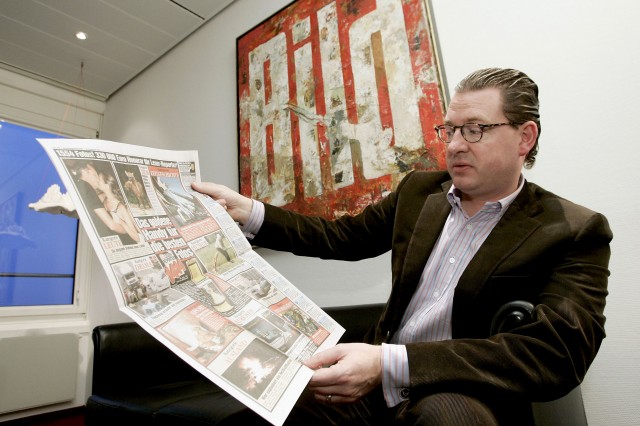Various forms and extras. Reading a newspaper on a laptop or desktop computer is not just a matter of overcoming the old habits but also of convenience. The introduction of tablets seems to be a new opportunity to provide content. The options to store an article off-line, save favourite materials as well as other extras offered with a comfortable and beautiful interface are worth a reasonable subscription, especially for people who travel a lot. This is just one possible example and scenario showing the case in which readers would be willing to pay. And it is only when what they will get in return for their money is clearly and precisely formulated.
Back to the old continent. Kai Diekmann, editor of the tabloid "Bild", has started the introduction of paid content after several months of training in California. Not without the assistance of the name and financial support from one of the largest publishing houses in Germany which owns the newspaper, "Bild", and feels that it has the power to request money from its online readers and monetise its online business.

Kai Diekmann, Photo: Reuters
The model to which the publisher has turned is known as "Freemium" which means to offer free news with exclusive content. Here we have a package offer that includes an application for smartphones and tablets plus subscriptions to online content. All this costs 4.99 euro per month. Those readers who want to access the digital edition of the newspaper will have to pay 9.99 euro. By comparison, Friday's issue of the paper edition of "Bild" costs 15 euro with a discount.
"Bild" is not the first newspaper to make such an attempt but it is one of the major media and all publishers hope that its attempt will be successful. This would help impose the model of paid content from which smaller media, which do not have the required prestige or financial resources to afford such an adventure, could take advantage.
The Balkans. We are used to living with the "culture of free items", arguing that we have no money for bread, let alone paying for free internet news. The problem, however, is not just financial, social or cultural; it is rather a mix of all these factors. Eventually it will turn out that it is a matter of habit or mentality, if you will. The pattern of paid access to content is not new either. There are such examples. However, they aim to feel how the land lies and are rather unsuccessful. They are unsuccessful attempts introducing successful practices. I will try to present them briefly, although not comprehensively, and the examples are not representative. There are simply no public statistics or studies and reports on the issue. The methods of payment are first. Those people who read newspapers in paper form are not very familiar with computers and online payment methods and generally, they would prefer to go to the neighbourhood newsstand. The majority of young people do not care about news and prefer more interesting ways of gleaning information. However, it is not only that. Let us take for example the social networks through which not only the young but also an increasing number of active and wealthy people are communicating. Imagine posting a link to paid content. I am sure that the vast majority of your friends do not have a subscription to it and will not have access to it which makes the link "dead." It has happened to me several times with American media and the people have just stopped sharing news from such sources and turned to websites with accessible news.
New culture. Yes, there is such and it is the culture of Twitters, of the people using social media, blogging ... of journalists. I was highly impressed by an episode of an American series of 2013 in which one of the main female characters, a journalist by profession, changed her job. She left a newspaper with a shrinking circulation and entered a "new type of media." The difference does not sound so impressive but it is very impressive when you see it, albeit in the series. The editor’s office was like... it is easier for me to describe it as an office of a large software company which is trying to make a creative environment for its employees. Forget the traditional editor’s office! Forget the desks, deadlines for materials, revisions and editorial policy. Why am I using this example? It is because the people were willing to pay for something that is not restricted and has a taste of freedom. In the "editor’s office" of the series, the journalists published the materials via their phones, where they wanted and could, without reviewing the materials, as quickly as possible, and the materials varied from "Twitter" type short messages to extensive analyses.
This is too modernist and perhaps impracticable for our conditions. But from a certain angle, the model of this media explains the success of websites like Reddit for which the readers' ratings is the most important feature.
Ultimately, in order for a model of selling content online to be successful the readers should be offered what they themselves seek. And this can be offered only by people who have a similar view of life and use the various channels of information similarly.